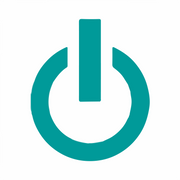Why It's Wise to Write Down Passwords

Most online accounts, such as email, banking, and streaming services, are protected by a series of letters, numbers, and symbols to keep information safe and to secure devices from viruses and a need for malware removal. Though many smartphones and computers offer password generators these days, there’s a lot to be said for writing your important access codes down. Here’s a closer look at the benefits of taking the old-fashioned route and how to go about it in a safe way.
Why Should You Write Down Passwords?
You may have heard that writing down a password weakens its security because anyone can see what you wrote. While that’s true, trying to remember a complex series is difficult, especially when you have a long list of accounts. Because you’re forced to use your memory, you either choose less complicated—and less secure—passwords, or you apply the same one across multiple accounts.
Humans are forgetful, and having a backup for your memory is beneficial. When you need to access an account and can’t keep resetting your passcode, a written reminder comes in handy. Digital password generators are certainly sophisticated tools, but if you’re on a different computer or don’t have your phone on you, you’re out of luck.
How Can You Make a Safe Hard Copy of Passwords?
 Even though writing down passwords can help you remember complicated login information, there’s a risk that the paper gets lost or stolen. Keeping them on you or locking them in a desk drawer can help, but paper can be lost, and locks can be broken. A few precautions will protect your cheat sheets so that only you can use them.
Even though writing down passwords can help you remember complicated login information, there’s a risk that the paper gets lost or stolen. Keeping them on you or locking them in a desk drawer can help, but paper can be lost, and locks can be broken. A few precautions will protect your cheat sheets so that only you can use them.
How you write your password notes is your first safety step. Jot down the passwords without the usernames or what they’re for. If your paper goes missing, the password is essentially useless since the username or email associated with it will be needed for access. Also, avoid noting the type of account it’s for, especially for important logins like a bank or trading account. Create an order to help you remember which password goes with what, such as listing them alphabetically by account type.
One of the safest techniques is to slightly change the passwords as you write them so that you’re the only one who knows the real sequence. Change one character or add one to the beginning or end. This ensures your actual access information is never really written out.
Some companies and websites offer two-factor authentication as an extra safety measure. Enable that when possible. If your password does get compromised, this additional step will stop someone from getting to the next level.
When you need virus and malware removal as well as computer repair, contact Experimax Portsmouth in New Hampshire. Their expert team can help you with your Apple® computer as well as data recovery on all of your devices, including PCs. They also have an inventory of refurbished MacBook® laptops if you’re in the market for a new system. Call (603) 501-0410 to discuss your needs or visit them online for more on malware removal to keep your devices secure.
About the Business
Have a question? Ask the experts!
Send your question

